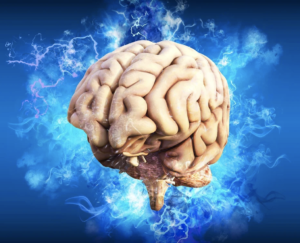Complimentary and Alternative Medicine (CAM):
Using the Mind – Gratitude
The Practice and The Science

“Gratitude is not just a social construct, it’s a real neurobiological phenomenon that is powerful for bringing a deepened sense of well being, connectedness and enhancing our relationship to self, others and all things.” – Dr. Andrew Huberman
From a neuroscience perspective, gratitude is a positive emotion that offers biological benefits, with tremendous positive effects on mental and physical health. Studies have demonstrated a definitive connection between practicing gratitude and good health, where neural circuit mechanisms reduce fear, increase motivation and lower inflammatory chemicals that contribute to chronic pain. The practice of gratitude releases stress, improves the quality of sleep, and builds emotional awareness.
A very insightful and informative source of information regarding the science of gratitude can be found on Dr. Andrew Huberman’s blog:
Gratitude
Gratitude can be described as an appreciation associated with noticing and acknowledging a benefit that has been received, whether from another person or deity, and feeling thankful for their efforts, sacrifices, or actions.
The Facets of Gratitude:
- Expressive: Feeling grateful and expressing gratitude to someone or some deity for a gift, an action or a circumstance that is perceived to have personal value;
- Receptive: Perceiving and acknowledging the gratitude another has for something you did, again in the performance of an act or a gift to that person.
- Blending Expressive and Receptive: One may find themselves perceiving the gratitude of another, yet also recognizing how grateful one is to that other person for providing one with the opportunity to make that effort or action in the first place. Like a mobius strip, these actions of gratitude circle back upon themselves.

Gratitude also incorporates developing a habit of focusing on and appreciating the positive aspects of life. As a life orientation towards the positive, gratitude can be an important factor in developing and maintaining well-being. Practicing gratitude can improve depression, reduce stress, improve sleep and promote social relationships.
Practicing Gratitude – The Meditative Model
Practicing Gratitude – The Action Model
One may not always find the time or place or even motivation to engage in meditative gratitude. Such is life. However, the benefits of gratitude are not limited to the meditative practice. The term “action model” of gratitude refers to recognizing the opportunity to express gratitude when confronted with an appropriate experience for reflecting gratitude.
Learning to offer your thanks and appreciation to another who deserves the gesture is the perfect opportunity to reinforce the experience of gratitude for one’s self as well as for another – and both gain the benefits. Recognizing the opportunity and Remembering to follow through with the expression of gratitude is a social skill that requires practice and many fail to develop this skill. But, in fact, repetitive active engagement of gratitude in daily activities offers the same benefits associated with the meditative practice. Like all skills that strengthen with practice, active engagement of gratitude provides rewards psychologically but also neurologically.
The Science
Multiple studies have shown a positive correlation between gratitude and mental health in healthy adults as well as heart patients and people with rheumatic disorders. For example, a study published in 2021 evaluated the impact of practicing various gratitude exercises over a period of 6 weeks.
The intervention consisted of evidence-based gratitude exercises which included writing exercises such as reflecting on events that generated a sense of gratitude and writing a letter to a person to express gratitude. Additionally, subjects performed morning meditations regarding establishing a grateful attitude in life.
The study demonstrated that practicing gratitude is effective in improving mental well-being and mood with reductions in depression and anxiety. In addition, the practice also showed a positive impact of experiencing and expressing gratitude on maintaining relationships. Also demonstrated was a strong impact on the appreciation of the contribution of others and greater appreciation of simple pleasures. These effects were were sustained up to 6 months.
.
Neurobiology of Gratitude
- Dopamine is intimately tied into the reward centers of the brain and feelings of well being. Deficiency of dopamine leads to a perceived lack of fulfillment and vulnerability to addiction.
- Serotonin, the other neurotransmitter associated with reward, is important in maintaining positive mood states and inadequate levels of serotonin are associated with depression and poor sleep quality.
Resources:
- The Science of Gratitude & How to Build a Gratitude Practice – A look into the science of gratitude by Dr. Huberman
- Gratitude is Healing – An insightful look at gratitude and its benefits by Asa Angel Holistic Healing
References:
- Neuroplasticity
- Raising Pain Tolerance Using Guided Imagery
- Exploring neural mechanisms of the health benefits of gratitude in women – A randomized controlled trial – 2021
- The Science of Gratitude – 2018
- Gratitude and well-being_ A review and theoretical integration – ScienceDirect – 2010
- Neural correlates of gratitude – 2015
- Science of Positive Thinking & Controlling The Mind – Andrew Huberman
- Promoting Gratitude as a Resource for Sustainable Mental Health – Results of a 3‑Armed Randomized Controlled Trial up to 6 Months Follow‑up – 2020
Emphasis on Education
Accurate Clinic promotes patient education as the foundation of it’s medical care. In Dr. Ehlenberger’s integrative approach to patient care, including conventional and complementary and alternative medical (CAM) treatments, he may encourage or provide advice about the use of supplements. However, the specifics of choice of supplement, dosing and duration of treatment should be individualized through discussion with Dr. Ehlenberger. The following information and reference articles are presented to provide the reader with some of the latest research to facilitate evidence-based, informed decisions regarding the use of conventional as well as CAM treatments.
For medical-legal reasons, access to these links is limited to patients enrolled in an Accurate Clinic medical program.
Should you wish more information regarding any of the subjects listed – or not listed – here, please contact Dr. Ehlenberger. He has literally thousands of published articles to share on hundreds of topics associated with pain management, weight loss, nutrition, addiction recovery and emergency medicine. It would take years for you to read them, as it did him.
For more information, please contact Accurate Clinic.
Supplements recommended by Dr. Ehlenberger may be purchased commercially online or at Accurate Clinic.
Please read about our statement regarding the sale of products recommended by Dr. Ehlenberger.
Accurate Supplement Prices
.
